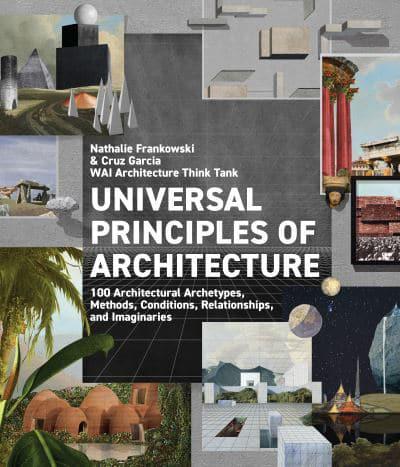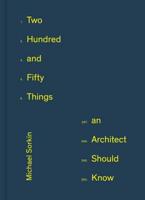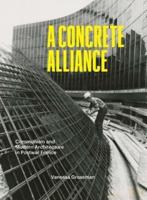Publisher's Synopsis
Take an expansive and provocative tour of architectural theory and practice, exploring everything from basic concepts to speculative design and subversive interventions.
Universal Principles of Architecture illustrates in 100 concepts the importance, possibilities, challenges, and roles that architecture plays in shaping the world. This radical and perhaps surprising survey is divided into five sections: Archetypes, Methods, Conditions, Relationships, and Imaginaries. And, each of the five sections in the book introduces in 20 principles architecture at different scales and stages of the design process.
Through an inclusive and holistic approach, the book refers to initial design ideas, creative design approaches, reflections on the effects of the built and destroyed environments, and architectural desires and aspirations to transform the world and engage with the cosmos.
Because architecture is the converging point where many fields of knowledge, ideas, forms, approaches, methods, sensibilities, and materials meet, the book provides a flexible and dynamic space where the material, conceptual, and social take shape.
Written, illustrated, and designed by critically acclaimed architects, educators, and authors Cruz Garcia and Nathalie Frankowski of WAI Architecture Think Tank, Universal Principles of Architecture combines accessible writing with otherworldly images like the ones they have displayed in exhibitions at the Centre Pompidou Metz, Museum of Modern Art New York, Neues Museum Nuremberg, and Museum of Art, Architecture, and Technology Lisbon.
The principles include:
Intended as an intergenerational and transdisciplinary reference volume, the book presents an ambitious overview of what architecture has been and can be in a world full of urgent challenges and abundant opportunities for social and ecological responsibility, and design creativity.
This book will challenge your preconceived notions of what architecture is and how it can be used.
Universal Principles of Architecture illustrates in 100 concepts the importance, possibilities, challenges, and roles that architecture plays in shaping the world. This radical and perhaps surprising survey is divided into five sections: Archetypes, Methods, Conditions, Relationships, and Imaginaries. And, each of the five sections in the book introduces in 20 principles architecture at different scales and stages of the design process.
Through an inclusive and holistic approach, the book refers to initial design ideas, creative design approaches, reflections on the effects of the built and destroyed environments, and architectural desires and aspirations to transform the world and engage with the cosmos.
Because architecture is the converging point where many fields of knowledge, ideas, forms, approaches, methods, sensibilities, and materials meet, the book provides a flexible and dynamic space where the material, conceptual, and social take shape.
Written, illustrated, and designed by critically acclaimed architects, educators, and authors Cruz Garcia and Nathalie Frankowski of WAI Architecture Think Tank, Universal Principles of Architecture combines accessible writing with otherworldly images like the ones they have displayed in exhibitions at the Centre Pompidou Metz, Museum of Modern Art New York, Neues Museum Nuremberg, and Museum of Art, Architecture, and Technology Lisbon.
The principles include:
- Figurative Archetypes
- Parasitic Architecture
- Diagramming
- Modelling
- Three-Dimensional Printing
- Carbon Neutral
- Biomimicry
- Inclusive Design
- Participatory Design
- AI Cities
- Queer Cartographies
- Intergalactic Architecture
Intended as an intergenerational and transdisciplinary reference volume, the book presents an ambitious overview of what architecture has been and can be in a world full of urgent challenges and abundant opportunities for social and ecological responsibility, and design creativity.
This book will challenge your preconceived notions of what architecture is and how it can be used.
The titles in the Rockport Universal series offer comprehensive and authoritative information and edifying and inspiring visual examples on multidisciplinary subjects for designers, architects, engineers, students, and anyone who is interested in expanding and enriching their design knowledge.







